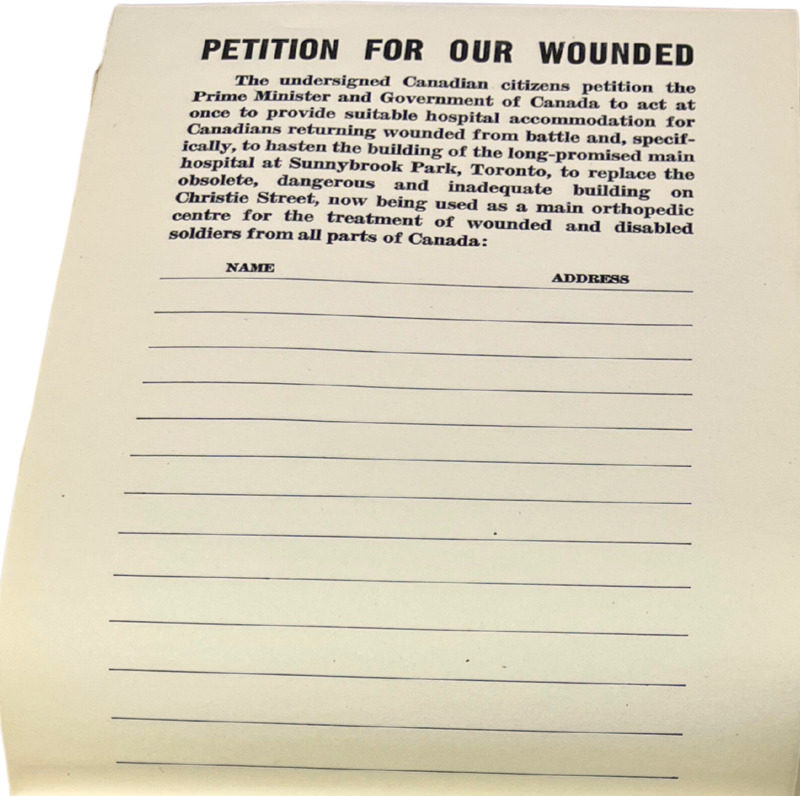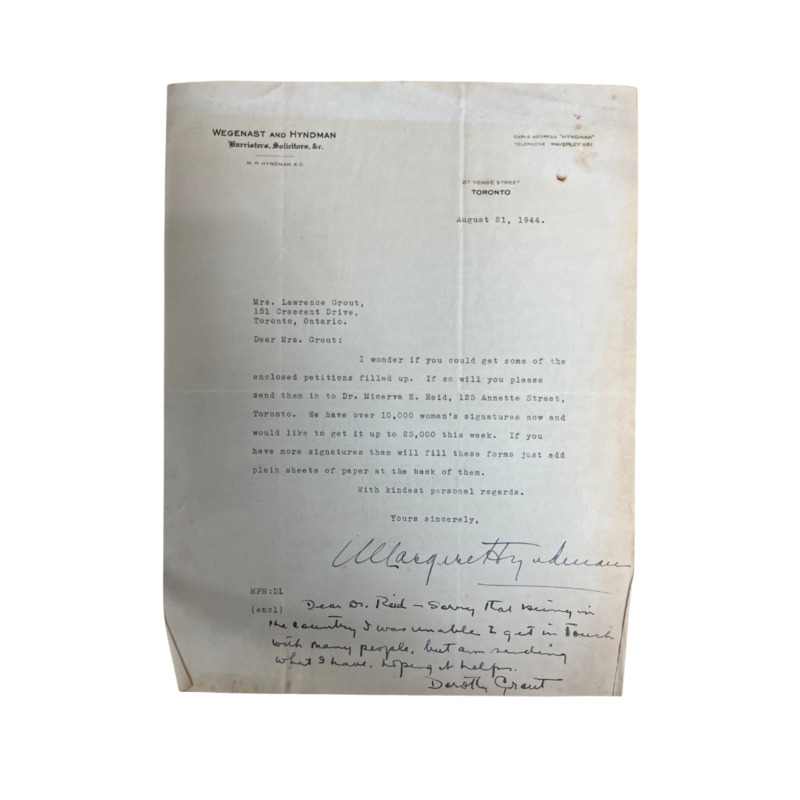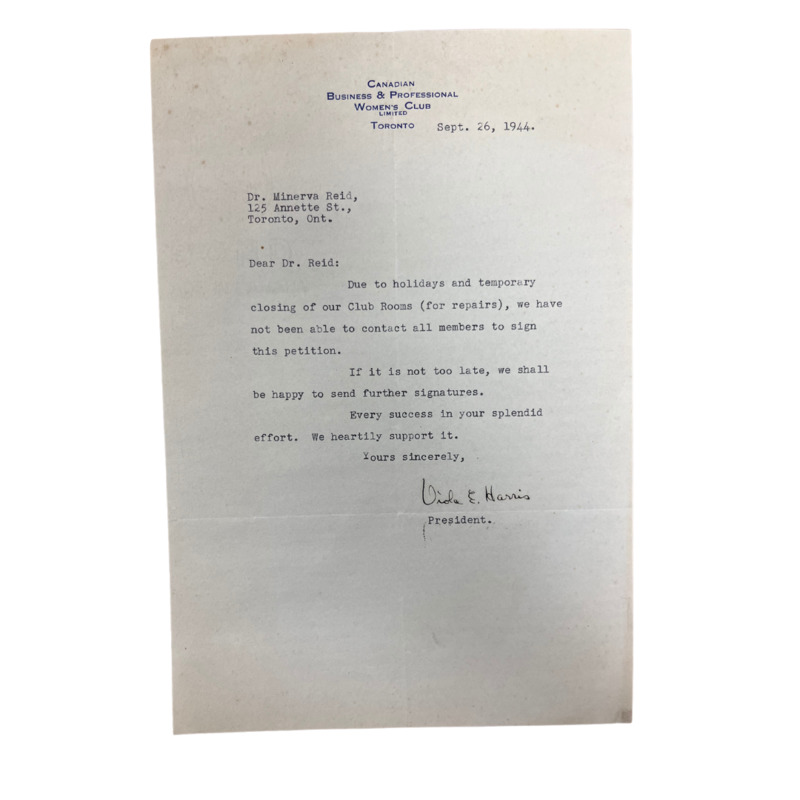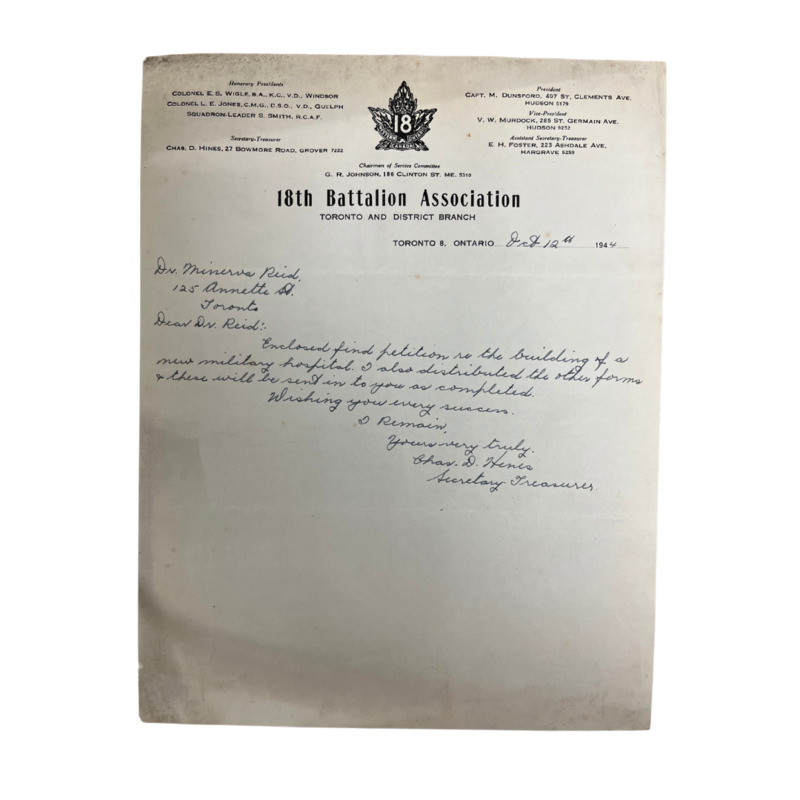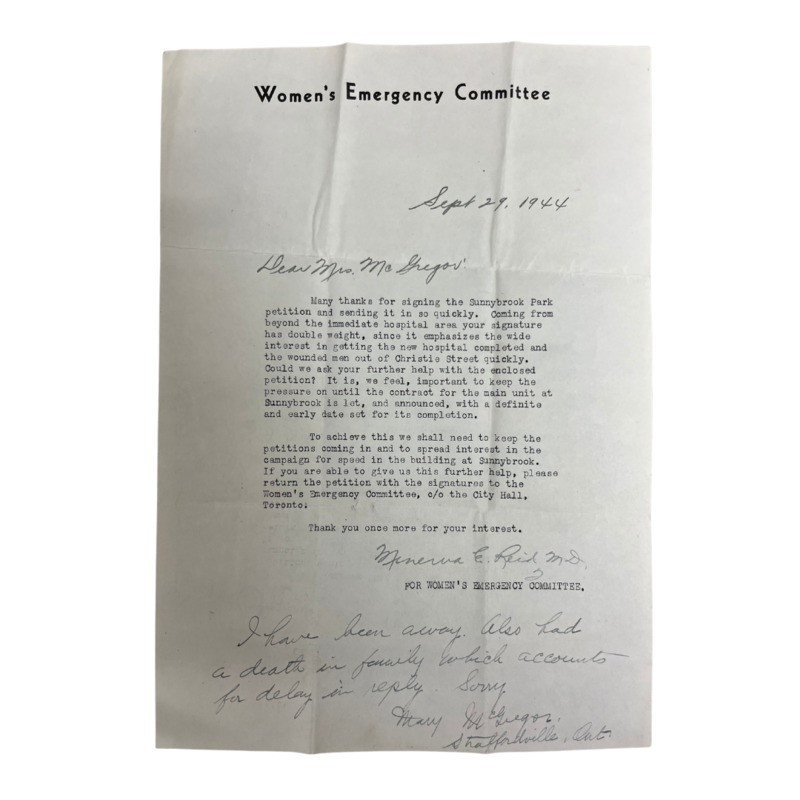THEIR PETITION FOR OUR WOUNDED
THE POWER OF A SIGNATURE: How a piece of paper turned into a weapon of war
Petitions have long been used to study the goals held by women at different times throughout history. Due to existing within a patriarchal society women are at an inherent disadvantage to men in terms of the autonomy they possess to dictate politics. Petitions have long been used by women in groups like the Emergency Women’s Committee for Wounded Veterans to claim autonomy in politics. (11) The Women’s Emergency Committee’s petitions reached out across the country asking people to sign their names in aid of the veterans at Christie Street. As the petitions began to return to the Women’s Committee the names signed all largely belonged to women. (12) This turnout reflected the makeup of Canada at the time as while embroiled in World War 2 many able men who could normally sign a petition were away at war. The turnout on the petitions also reveals how many women outside the committee resonated with its cause. Each woman who signed her name on the Committee’s petition was fulfilling her role as an emotional nurturer and using it as a weapon to fight against the patriarchal government. The male-dominated Canadian government treated Veterans Hospitals as factories to cure physical injuries. The women of Canada however knew that Christie Street needed to be a place for both mental and physical rehabilitation.
Circulation of the Petition
ACROSS THE COUNTRY: The impact the committee’s petition had on organizations across Canada
